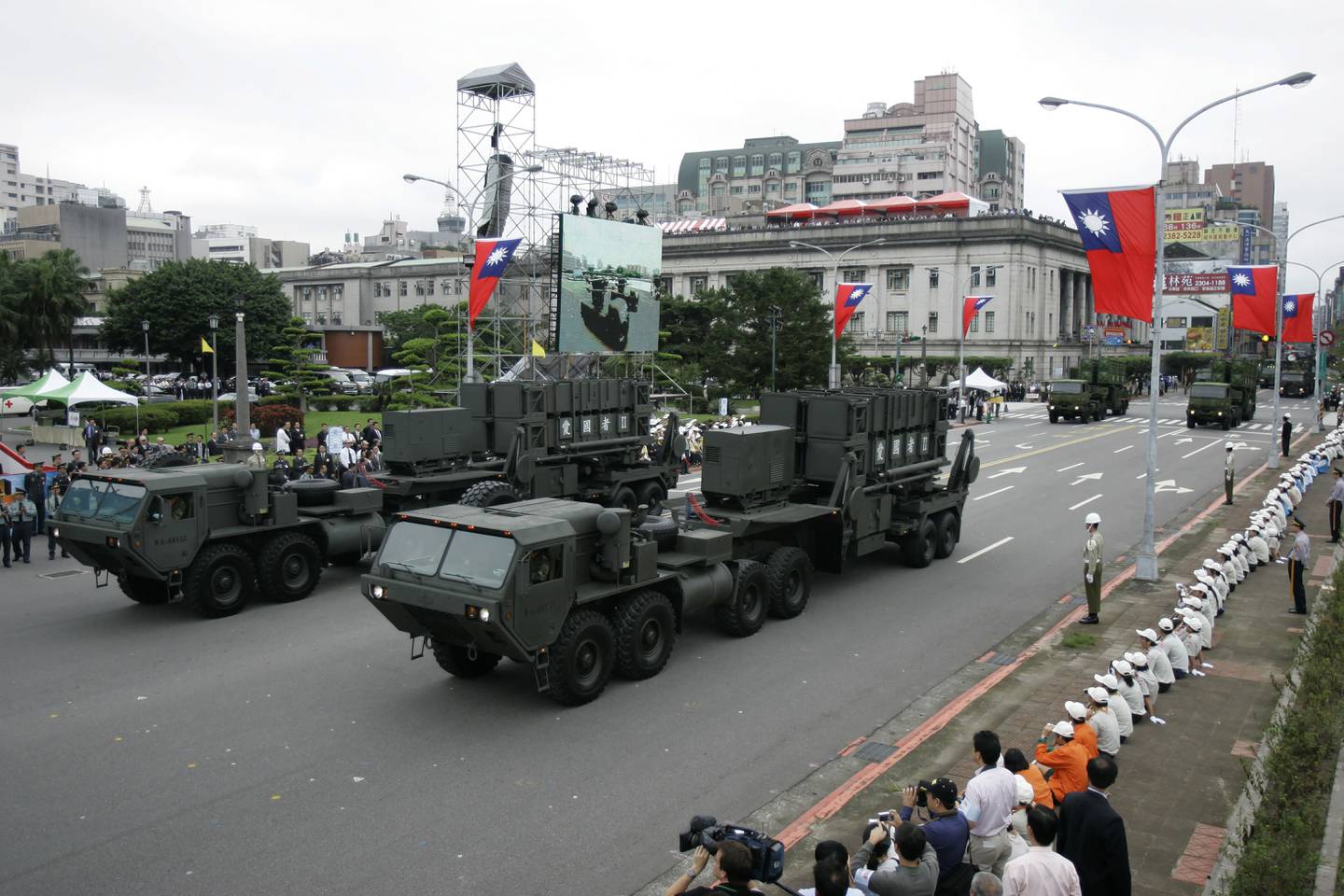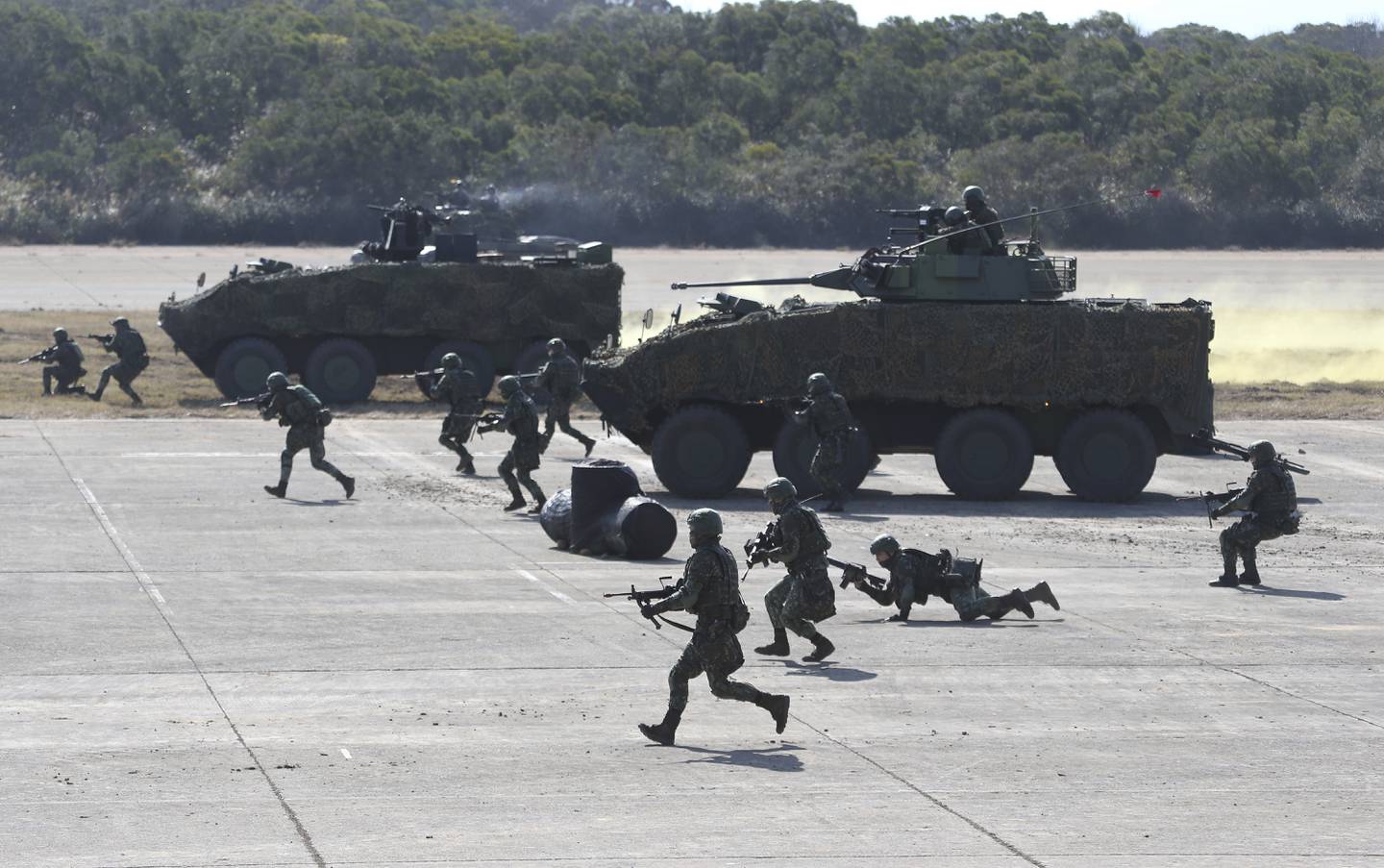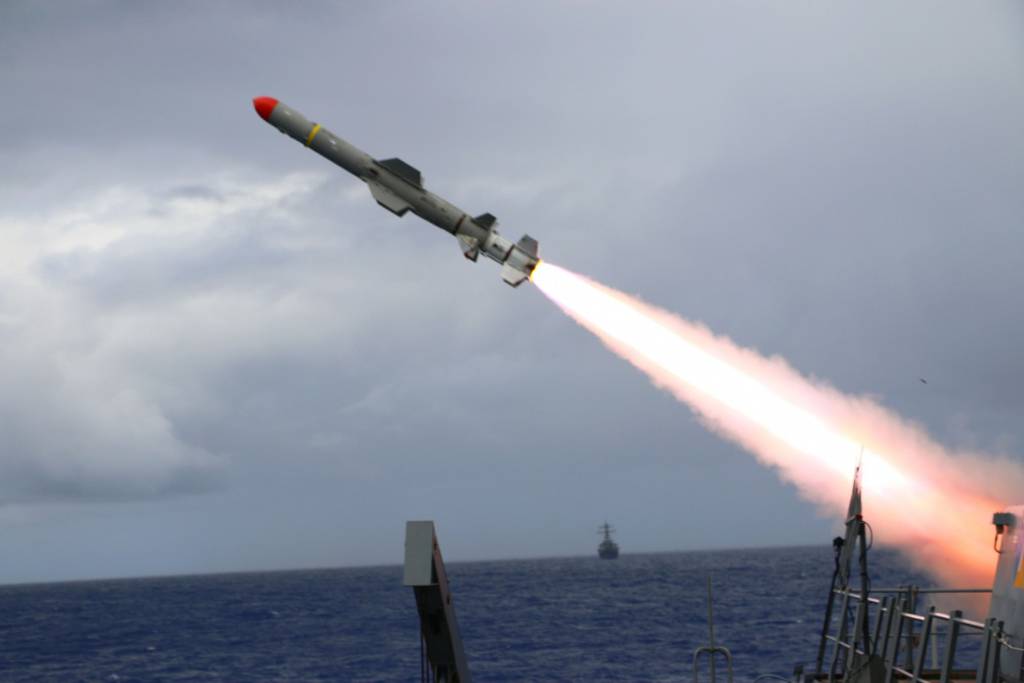This story was a 2023 Society for Professional Journalists Dateline Award finalist for beat reporting in a newsletter or trade publication.
WASHINGTON — Pandemic-related acquisition issues have sparked a backlog in the U.S. delivering $14.2 billion worth of military equipment to Taiwan that the island has purchased since 2019.
With much of Washington’s attention focused on how to rapidly deploy a steady stream of military aid to Ukraine, some lawmakers are concerned the Taiwan delay is undermining its ability to deter a potential Chinese invasion.
Rep. Steve Chabot, the top Republican on the House’s Asia and Pacific panel, told Defense News that the Foreign Affairs Committee held a meeting to discuss the backlog last week.
“We need to make sure that we provide Taiwan with the assistance that they need as well so that they’re not vulnerable to the [People’s Republic of China],” the lawmaker from Ohio said. “Obviously Ukraine is in the limelight right now — and rightfully so — but we best not forget about Taiwan because China’s actions have been more and more provocative.”
Defense News has obtained a spreadsheet detailing the backlogged equipment, which includes Taiwan’s $8 billion purchase of 66 F-16 fighter jets as well as $620 million to replace expiring components of its Patriot missile system.
The delayed deliveries also consist of smaller, asymmetric weapons systems Washington believes would be useful in deterring and thwarting a potential Chinese invasion. China considers the self-governing island a rogue province and has promised to bring it back under Beijing’s control, by force if necessary.
Those asymmetric weapons include Stinger missiles, heavyweight torpedoes, high-mobility artillery rocket systems, Paladin howitzers, MS-110 reconnaissance pods and a field information communications system. They also include $2.37 billion in Harpoon Block II surface-launched missiles and $1 billion in air-launched SLAM-ER missiles.

The $14.2 billion backlog of sales accounts for the vast majority of the approximately $17 billion in military equipment Taiwan agreed to purchase from the United States since July 2019. The U.S. State Department notified Congress of another $95 million sale to provide contracting support for Taiwan’s Patriot missile system just last week. (Foreign Military Sales notification figures represent potential arms sales that the State Department internally clears. They must then clear a congressional review period, during which costs and quantities can change.)
Neither the Defense Department nor Taiwan’s diplomatic office in Washington replied to Defense News’ request for comment about the backlog.
But Taiwan’s envoy to the United States, Hsiao Bi-khim, raised the alarm bells on Capitol Hill last week in a bid to urge Washington to address the backlog.
Hsiao addressed it during a breakfast with Rep. Mike McCaul, R-Texas, the ranking member of the House Foreign Affairs Committee, and pushed for Taiwan’s inclusion alongside the U.S. and more than two dozen other participants in the biennial Rim of the Pacific naval exercises off the coast of Hawaii.
“Her biggest complaint to us is that while we have notified and signed off on these systems, they have yet to be delivered to Taiwan,” McCaul told the State Department’s No. 2 diplomat, Wendy Sherman, during a hearing last week on the Indo-Pacific region.
He likened Taiwan’s position vis-a-vis China to that of Ukraine in the lead-up to the Russian invasion.
“Is Taiwan able to defend herself?” McCaul asked. “I think the answer is ‘no’ right now, and I’m worried about that. I don’t want to make the same mistake of waiting until after an invasion because that’s going to be too late.”
However, it remains unclear what — if anything — the United States can do to address the pandemic-related acquisition issues that prompted the backlog.
“Our primary issue — and we see this playing out in Ukraine also — is that the industry has been delayed in the development of these systems,” a Republican staffer on the House Foreign Affairs Committee told Defense News.
The staffer also noted the U.S. defense industry has attributed supply chain issues, staff shortages and shipping delays to COVID-19 — problems that have cascaded into broader production troubles.
“Honestly, the bottom line is there is very little that the government can do at this juncture to address supply chain issues,” Rupert Hammond-Chambers, the president of the US-Taiwan Business Council, told Defense News.
Hammond-Chambers pointed to the federal government’s inability to address semiconductor supply chain issues that contributed to higher car prices around the globe.

“There’s a great deal of political and international pressure to sort it out, but it’s having almost negligible impact on the ability of the companies to produce the chip that is necessary for the auto industry,” he said.
Prior to the backlog, Congress had largely remained focused on incentivizing Taiwan to make cheaper purchases consisting of large quantities of asymmetric munitions versus the more expensive, state-of-the-art weapons that China may quickly incapacitate during an invasion.
And while much of Taiwan’s U.S. defense purchases bolster its asymmetric capabilities — including many of the backlogged articles — some in Washington raised their eyebrows in 2019 when Taipei opted to move ahead with a $2 billion purchase of Abrams tanks.
“The United States encourages Taiwan to purchase weapons that will enable [it] to adopt a strategy of denial that will prevent China from being able to seize and control Taiwan, so that it will not have the confidence to do so and therefore will not be tempted to do so,” Bonnie Glaser, the Asia Program director at the German Marshall Fund, told Defense News.
For instance, Chabot introduced a bill last year with Rep. Ami Bera, D-Calif., calling on Taiwan to further invest in asymmetric defense capabilities.
Sen. James Risch, R-Idaho, the ranking member on the Senate Foreign Relations Committee, has also introduced a bill to authorize $2 billion a year in Taiwanese military aid, but only if Taipei produces long-term plans for joint capability development with the United States.
Another bill, introduced by Sen. Josh Hawley, R-Mo., would authorize $3 billion in Taiwanese military aid annually. The bill would place more explicit requirements stipulating the funding go toward developing Taipei’s asymmetric defense capabilities against China.
The Biden administration has also encouraged Taiwan to invest more in its asymmetric capabilities, even as many of those munitions remain backlogged.
“We are also encouraging Taiwan to focus on capabilities that would deter the [People’s Republic of China] from taking Taiwan by force,” Sherman said during her testimony before Congress last week. “This means a focus on capabilities that are cost-efficient, mobile, lethal, resilient and capable of operating and surviving a contested environment.”
Bryant Harris is the Congress reporter for Defense News. He has covered U.S. foreign policy, national security, international affairs and politics in Washington since 2014. He has also written for Foreign Policy, Al-Monitor, Al Jazeera English and IPS News.








